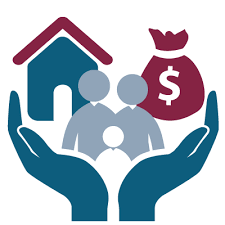
Financial responsibility isn’t a subject that’s commonly discussed with or amongst students, and many students feel they haven’t been given the proper tools or advice to save and spend their money wisely. The cost of an undergraduate or graduate degree is a significant financial investment, and it can be a very wise investment if that degree will launch you to your desired career and dream job.
The Master’s in Biomedicine and Health Care Management programs at EMU decided to start the dialogue on this important conversation. We invited a local financial planner to speak with our students about financial responsibility.
Here are some of the highlights he shared with our students:
- Our views about finances are strongly rooted in the experiences we’ve had in our families growing up.
- It’s smart to start thinking about money now and to make a plan.
- The reality is that not many students know how to budget or currently live on a budget.
- Work to set up a budget – there are online tools like this one that can help you do just that.
- Try using an “envelope system” containing cash (especially if you’re an impulsive spender) to spend on eating out and other fun expenses each month. Once that cash is gone for the month, it’s gone.
- Practice being different from others when it comes to spending your money – if others are spending too much, it’s ok for you to not be spending as much as them!
- People’s financial habits don’t change for the better because they get older or make more money. You have to choose to change your financial habits now. Don’t bank on the fact that you will simply make more money one day.
- What are your expectations for your time and your life when you become a doctor, dentist, physician assistant, etc.? Should you automatically get a nice car like the other people you work with? Should you buy that expensive home before you’re financially ready because others have expensive homes? Think about these things now, and when you’re done with your medical training, focus on prioritizing paying back your loans first before you adopt a lifestyle you’re bank account isn’t ready for.
He left our students with the final take-home message:
You can be building healthy financial habits now that can have a significant impact on your future financial security.